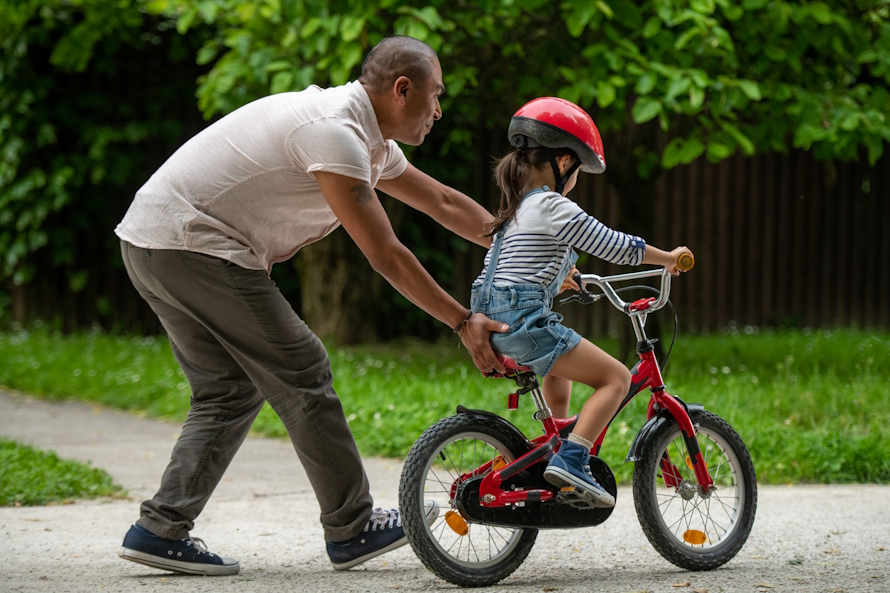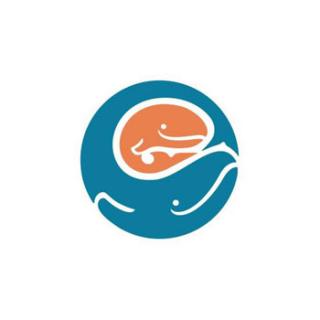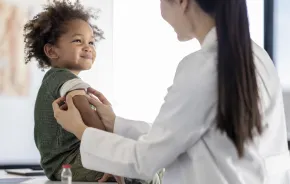
Parents and children who have bike helmets and wear them for every ride are off to a good start. But do those helmets fit correctly?
Proper helmet fit is vitally important in protecting against head injury, whether riding through the neighborhood or commuting to school or work.
A quick look around town reveals that many people are wearing helmets that don’t fit well or aren’t adjusted in the right way.
Check out the tips below for getting a good bike helmet fit.
This excerpted post was originally published on the Seattle Children’s On the Pulse blog.

Choose a bike helmet that meets safety standards.
Before taking the time to adjust a helmet for fit, first be sure it meets safety standards. Look for a helmet with a Consumer Product Safety Commission (CPSC) or Snell sticker inside.
Adjust the helmet position to low on the forehead and level.
Helmets need to protect the forehead, not just the top of the head. To get proper protection, the helmet should sit level on a child’s head, with only enough room for 1 to 2 finger widths between their eyebrows and the lower rim of the helmet. A helmet that is pushed up too high will not protect the face or head well in the event of a fall or crash.
Straps need to hug the ears.
Helmet straps should be even, form a ‘Y’ under each earlobe and lay flat against the head. Make sure they aren’t twisted. Adjust the straps if the helmet rocks forward or rolls back when buckled.

Buckle up tight.
A child might challenge a parent or caregiver on this one, but the chin strap of a helmet needs to be buckled in a way that leaves only about the space of a finger between the buckle and their chin. This allows for a fit that is still loose enough to breathe, but is tight enough that the helmet visibly pulls down on top when the child opens their mouth. This is important for keeping the helmet in place in the event of a fall or crash.
Use the pads or fit ring.
The fit can be adjusted so that the helmet does not move from side to side too much by using the fit ring on the back of the helmet or using the pads that come with the helmet. The pads can be placed where there is space at the front, back and/or sides of the helmet so they touch the child’s head evenly all the way around.
Wear it for every ride.
Insist that a child wears a helmet for every ride. Falls can happen anywhere. It helps to start the helmet habit early when children first start using a tricycle or balance bike. Parents and caregivers can help them follow the helmet rule through the teen years and beyond by being a good role model and wearing a helmet, too.
Bike helmets are good for only one crash.
Replace a bike helmet that has been involved in a crash. Follow the helmet manufacturer’s recommendations for other times to retire a helmet.
Stay safe and get riding!
Along with following other bicycle safety measures, helmets help keep kids out of emergency rooms and save lives. It’s important to make sure helmets fit properly before families get out and ride.
Resources |











